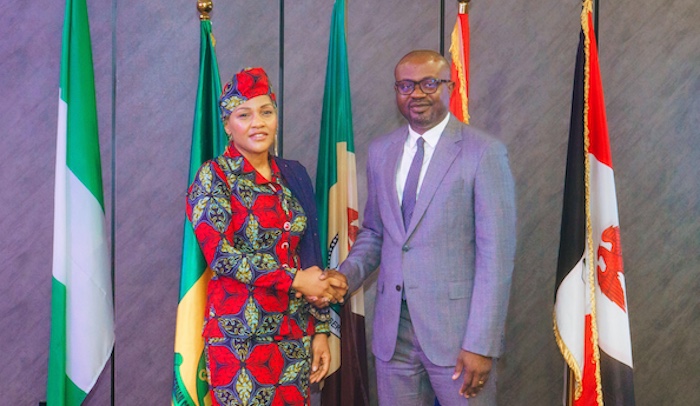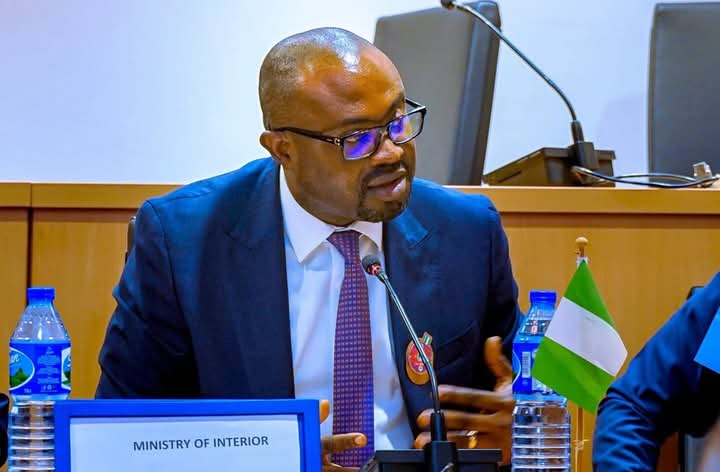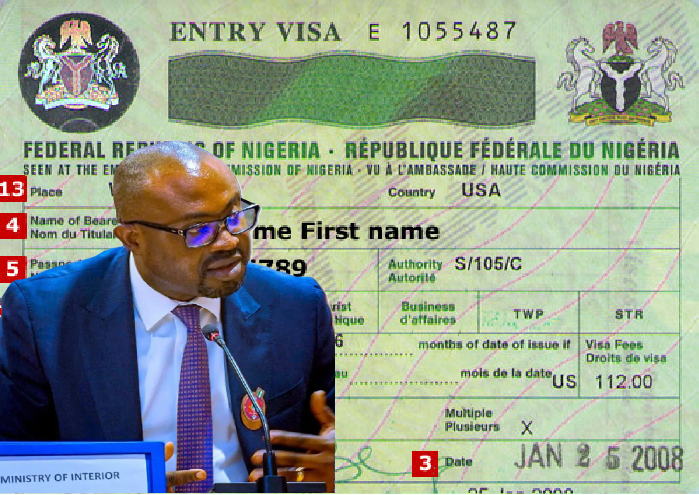For countless international travellers and investors, Nigeria’s visa policies have often been a source of uncertainty. In a move that initially sparked widespread rumours of cancellation, the country’s esteemed visa‑on‑arrival (VOA) scheme has instead received a transformative overhaul. At the centre of clarification is Interior Minister and House of Representatives spokesman, Olubunmi Tunji‑Ojo, who this weekend emphasised that the VOA system remains firmly in place—but with a fresh digital facelift aimed at boosting ease, speed, and border integrity.
Table of Contents

From Panic to Progress: Cutting through the Confusion
Last week, whispers spread across trade and travel communities suggesting that Nigeria had quietly scrapped its VOA system. The speculation sent shockwaves through business circles, with entrepreneurs and tourists alike wary that travel disruptions were imminent.
Addressing growing panic, Minister Tunji‑Ojo reassured stakeholders at a closed-door session in Abuja, attended by the Presidential Enabling Business Environment Council (PEBEC). “The VOA is not abolished—it has been enhanced,” Tunji‑Ojo clarified, reaffirming that the initiative aligns with President Bola Tinubu’s broader reform agenda.
According to PEBEC director‑general Princess Zahrah Audu, the updates are “not intended to bar access, but to protect Nigerian travellers and streamline procedures” by digitising formerly manual steps.
Why Nigeria Pivoted: Fast, Secure, Modern
1. Faster, Smarter Processing
Under the legacy system, VOA applications—particularly at land borders—could drag on for days, mired in paperwork and human bottlenecks. The new process moves most steps online, ensuring “visa approval within 24–48 hours” via email confirmation, Tunji‑Ojo said. Gone are the long queues and uncertainty.
2. Digital Delivery over Stickers
No longer will visas be affixed to passports at the point of entry. Instead, confirmations arrive digitally, much like Nigeria’s new e‑Visa and landing‑card systems piloted since May 1, 2025.
3. Border Control Reinvented
Centralising data online enhances both efficiency and security. Digital approvals drop into border agencies’ systems, enabling real‑time traveller tracking and automated risk‑flagging—all while accelerating arrivals for compliant visitors.
4. Global Best Practices Integration
Nigeria’s shift mirrors international trends; digital VOAs are now standard practice in many countries, and Nigeria is aligning itself with this modern, contactless, data‑driven movement.

What the Overhauled System Looks Like
Here’s a detailed breakdown of how the renewed VOA process unfolds:
| Step | What Travelers Do | What Nigeria Does |
|---|---|---|
| 1 | Travel to Nigeria with a printed or digital visa code | Process in 24–48 hours |
| 2 | Upload documentation (passport copy, invitation, payment proof) | Validate, approve, and issue visa code via email |
| 3 | Travel to Nigeria with printed or digital visa code | Scan, verify, and grant entry at ports/airports |
Behind the scenes, this digital-first system is powered by Nigeria’s broader e‑Visa architecture, which launched earlier in May 2025 with 48‑hour approvals. By consolidating VOA into this infrastructure, authorities ensure consistent, centralised, and secure immigration handling.
Strategic Gains: Business, Security, and Beyond
Unlocking Business Potential
Nigeria’s economy hinges heavily on foreign investments. Whether in finance, manufacturing, tourism, or tech, rapid entry is crucial for visiting executives, investors, and experts. The VOA reform signals to global stakeholders: Nigeria is open for business, and serious about making entry straightforward.
Boosting Tourism & Trade
Easier visas directly correlate with increased tourism. Leisure travellers, conference delegates, and festival-goers will now view Nigeria as accessible and intentional in its welcome, a vastly different narrative from the perceived bureaucracy.
Enhanced Border Oversight
Digitised visas mean better data mapping, risk targeting, and fraud prevention. Immigration officers can efficiently filter legitimate entrants, while unauthorised attempts are flagged early on.
Alignment with Global Innovation
From Australia to Canada and beyond, digital visa systems are now the norm. By adopting similar technology, Nigeria demonstrates competence, relevance, and ambition on the world stage.
Looking Ahead: What Still Needs Attention
Tunji‑Ojo noted that while the system rolls out smoothly, technical support and education are vital. PEBEC and the Interior Ministry will market concise how‑to guides, deploy helplines, and liaise with travel agents and corporate HR departments—especially in regions where internet access or digital literacy is limited.
Future updates may include mobile app support, multilingual interfaces, and API tools for airlines or third‑party visa processors.
Real‑World Response: Investors React
Industry response has been notably positive, with tempered caution. Travellers praising the speed and convenience now expect further system stability. A few ask whether traditional paper VOA options will remain available for those unable to apply digitally. Governments are reportedly reviewing fallback provisions.
Several investment firms hailed the reform as “a game-changer for FDI,” noting that when bureaucratic friction drops, deal velocity and credibility rise. Tourism promoters are forecasting early boosts in bookings this quarter.
Minister Tunji‑Ojo: Speaking with Purpose
Of particular note is Minister Tunji‑Ojo’s approach. Rather than merely denying rumours, he took the opportunity to explain the why, what, and how behind the updates. This openness points to a broader trend under President Tinubu: transparency-led reform, grounded in dialogue with stakeholders.
By choosing clarity over censorship, Tunji‑Ojo shifts the narrative: Nigeria isn’t retreating; it’s sprinting forward.
A Regional Beacon: Nigeria’s Path Forward
In West Africa’s competitive landscape, Nigeria consistently vies for leadership. Smart visa policy has become a benchmark between nations aiming to attract business, tourism, and strategic partnerships.
Nigeria’s digital VOA may serve as a regional model: a progressive, impactful reform helping to draw new airline routes, conference venues, and corporate investments.
Final Takeaways
- VOA not abolished: Upgraded, digitised, and fully operational.
- Rubber‑stamp timelines: 24–48‑hour approval window via email.
- Digital-first delivery: No airport passport stickers—the visa is in your inbox.
- Boosted security: Real-time data enhances border management & risk control.
- Business & tourism catalyst: Faster entry means more flights, deals, and engagements.
Execution will matter: the government must ensure rollout clarity, user-friendliness, and technical support. If well-managed, this overhaul could significantly shift perceptions of Nigeria, from red-tape hot spot to a competitive, modern African gateway.

What Travellers & Corporates Should Do Now
- Visit the official e‑Visa portal upon launch (link to be announced).
- Prepare documents: passport scan, hotel/investor invitation, application payment receipt.
- Monitor application via email and arrival details.
- Share any issues with the PEBEC – Interior Ministry hotline for swift resolution.
By proactively replacing confusion with clarity, Nigeria’s government has set an example in policy transformation, demonstrating how a bold statement followed by practical execution can reshape national and global perception.
Nigeria’s upgraded visa‑on‑arrival policy isn’t just alive—it’s a statement about the country’s future: digital, open, and empowered to connect with the world.
Join our WhatsApp community
Join Our Social Media Channels:
WhatsApp: NaijaEyes
Facebook: NaijaEyes
Twitter: NaijaEyes
Instagram: NaijaEyes
TikTok: NaijaEyes





